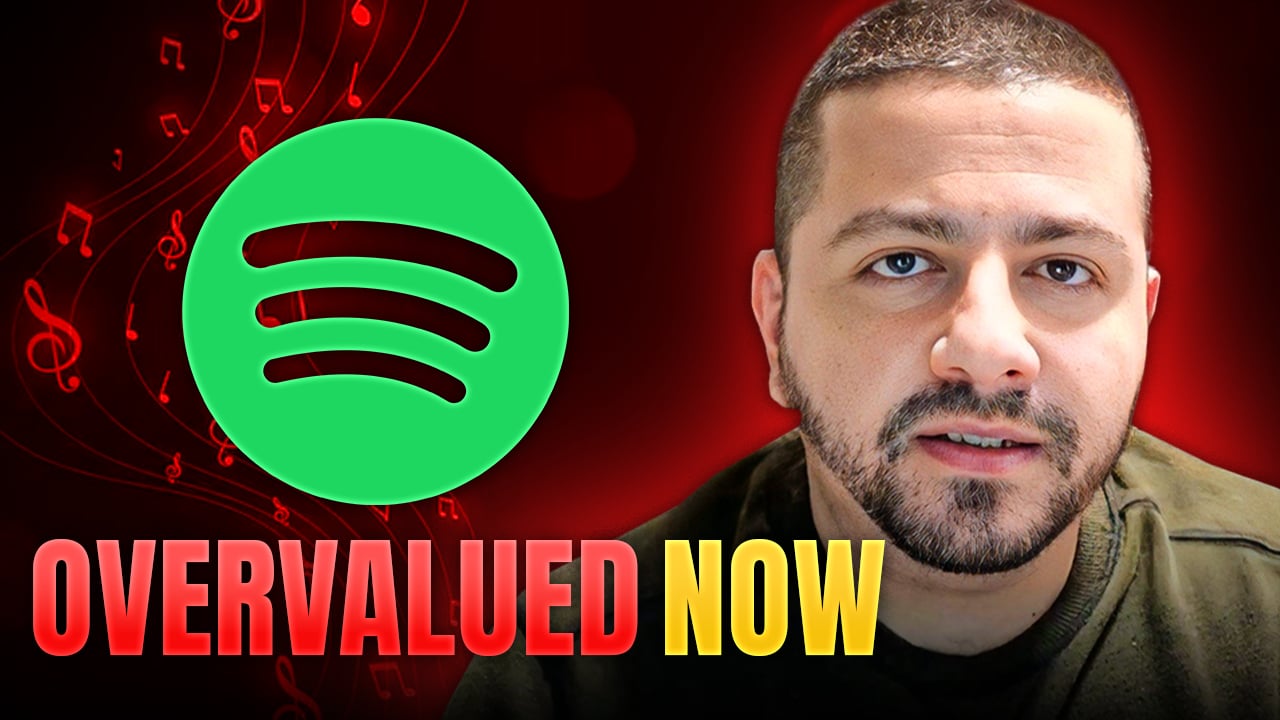Spotify's (SPOT 6.80%) operating loss narrowed in the third quarter because of slower-than-expected hiring activity, even as a one-time tax benefit led to profitability. The Swedish company knows it needs to aggressively reinvest in the business to maintain its title as the largest paid music streaming service.
A full transcript follows the video.
This video was recorded on Nov. 2, 2018.
Dylan Lewis: Why don't we switch gears and talk Spotify? The market was happy with Fitbit's results; not exactly the case for Spotify. We saw a pretty big sell-off after earnings. The company is actually down to lows since they've gone public. This is the lowest we've seen shares.
Evan Niu: Investors weren't too happy with Spotify. I think part of it was their guidance. As far as the results for this quarter goes, revenue came in at about $1.5 billion. Premium subscriptions are continuing to grow. Now they're at about 87 million Premium subscribers. That's by far the biggest premium paid subscriber base in the world in the music streaming industry. We've talked about Tencent before, but Tencent, as we mentioned on other shows, most of their users are free users. They're not actually subscribing. Spotify is by far the market leader here.
They were actually profitable, but that was a one-off occurrence, and actually related to Tencent Music. They had a tax benefit related to a market-to-market adjustment regarding the value of Spotify's stake in Tencent Music. If you remember, they did an equity swap last year. When Tencent Music filed to go public, there was a lot of information in there that basically warranted them making some adjustments. So, that's where their tax benefit came from. That's not a regularly occurring thing. They actually lost less money than they thought on an operating basis, which they considered a negative thing. They said, "We should have lost more money."
Lewis: Right. This is a company that is very much in growth mode. They're expecting to spend a lot of money, particularly on the hiring side, in the R&D element of their business. They were disappointed that they couldn't spend more and bring more people on.
Niu: Right. It's basically, their operating margin improved. They still lost money on an operating basis, but they said, "We should have lost more. We didn't hire as many people as we wanted to." That's also continuing into the fourth quarter, which is also why they adjusted their guidance. Their financial guidance, they're actually expecting to lose less money than they previously forecasted. Again, they consider that a bad thing. They know they need to be reinvesting very heavily into this business to really keep growing, and profitability will come later.
Lewis: You mentioned the guidance. I think you're right, that's why we're seeing the sell-off today. The reality is, they've gotten bitten by their own optimism. They put out some improved guidance last quarter, looking at their full-year outlook. They revised all that back down to what they were originally expecting at the beginning of the year. It's not that there's a huge reset going on. We're talking about a difference of one million Premium subscribers one way or the other.
All told, Evan, how are you feeling about Spotify? You are a shareholder.
Niu: I still think it's a good company for the long term. I still believe in where this company is going. I think this market reaction is an overreaction. It's just minor adjustments to their Premium subscriber outlook. Like you mentioned, it's like a million subscribers one way or the other. That's not the kind of number that's going to make or break this company. Investors selling off the stock, I think, is kind of silly. We're just going back to the guidance they issued earlier this year, which is still strong guidance. They're expecting 93 [million to] 96 million subscribers at the end of the year. Again, they're by far the biggest paid streaming service out there.
Lewis: If you're buying into the long-term vision of this company, and you're thinking, "Music streaming is the future. This is one of two companies that are extremely well positioned to capitalize on it in the U.S. and in Europe, some of the big markets," then 1 million in one or two quarters shouldn't make a big difference. The addressable market for these types of services is so much bigger than that. The larger opportunity is so much bigger. I wouldn't get too swept up in the individual guidance figures from one quarter to the next if that's the narrative that you're buying here.
Niu: Exactly. I'm still confident. I'm hanging on.
Lewis: I think this is also a pretty good lesson in dollar-cost averaging on some positions. We've talked about some recent IPOs, we've done some deep dives. It's really easy to get excited when you first have an opportunity to scoop up shares of a company that you've been following for some time. I think that this movement that we're seeing is very typical, really, for a new issuance. We're still within the first year, first couple of reports, of Spotify as a publicly traded company. I take all this as a reminder to why it's so important to buy into positions over time, to dollar-cost average. There are going to be lumps with companies as they report. The market is going to take their lumps, as well, as we're seeing over the last couple of months. You don't want to have a cost basis that is tied to one particular point in time. You want to benefit from those movements and work down to, ideally, a lower cost basis on your position.
Niu: Especially IPOs. All IPOs are so volatile and risky in the first year or so. The market is trying to figure out, what is this company worth? It takes some time.






